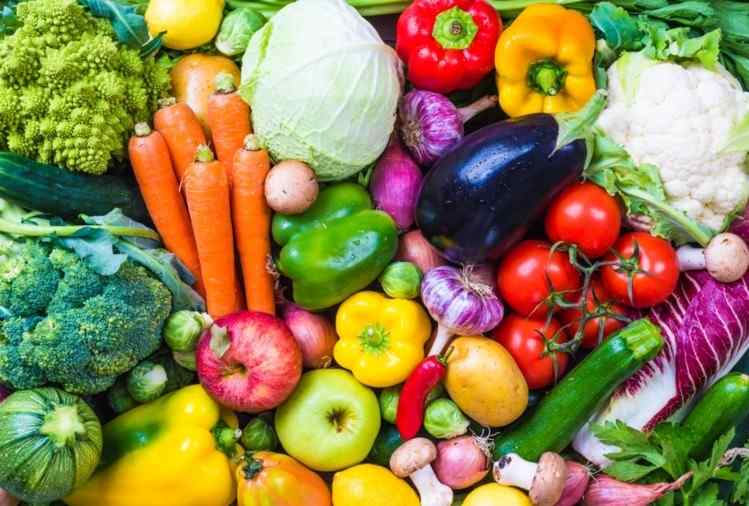Our eating habits are some of the most significant factors in determining our overall health. While it may be easy to celebrate conscious, healthy eating, it is hard to ignore when we make not-so-healthy choices. When it comes to inflammation in your body, your diet plays a significant role in the immune response and the recovery process.
While short-term inflammation can be irritating, it is a natural bodily response to injury that helps protect your body from illness or further damage. Long-term or chronic inflammation is dangerous and can lead to diseases like diabetes, heart disease, or even cancer. Chronic inflammation can often be found in obese people or those who experience high levels of stress.
Inflammation in the body can be caused by a poor diet, full of processed foods, refined carbs, and high amounts of sugar. Adjusting your diet is a helpful way to address inflammation issues. Read on to get more tips on how to incorporate more anti-inflammatory foods into your daily diet:

1. Take in More Fiber-rich Foods
You have a reason to pile up more vegetables, fruits, whole grains, and nuts into your diet. Eating various fruits and vegetables is beneficial for your body to gain the necessary phytonutrients rich in antioxidants that help reduce inflammation.
Nuts, lentils, and beans are plant-based proteins rich in fiber and protein. Proteins are required to build effective antibodies in the affected area to fight infection. If you are lucky enough to have a bulk supply of fruits and vegetables, five servings a day will give you an ample amount of fiber.
2. Try Omega-3-rich Foods
These are another great source of proteins found in fatty fish commonly; salmon, mackerel, tuna, and sardines. The fatty acids in these foods are great heart and brain boosters and further help as anti-inflammatories. Alternatively, you can get fish oil from available omega-3 supplements in the market.
3. Avoid Alcoholic Beverages
For a long time, alcohol significantly lowers components that strengthen the immune system to fasten the healing process. Only a few brands of alcohol like red wine and white wine help reduce inflammation.
Replace that cup of coffee with exceptional beverages like green tea with a component known as EGCG that releases the necessary antioxidants that help reduce inflammation. Once you have adjusted your diet, you can take alcohol in moderation. Green tea also helps prevent cancer, joint conditions, and Alzheimer’s.
4. Add Herbs and Spices to Your Meals
Not everyone is a fan of spicy food, especially when put in excess, and one would think they add to the existing inflammation. Contrary to hearsay, herbs, and spices such as cinnamon, turmeric, rosemary, ginger, fenugreek help reduce inflammation. They also help fight against heart diseases, respiratory diseases, cancer, and brain conditions.
5. Consume Probiotic-rich Foods
A good way of supporting your gut system is by supporting the healthy microbes by cutting processed foods containing unhealthy fats and sugars. Instead, shift to low-fat dairy products like yogurt that enrich the already existing microbes in your gut system. These ensure that your gut system maintains healthy bacteria, a great anti-inflammatory.
6. Look for Monounsaturated Fats
Do you ever think of the kind of oils you use to cook your food? You could eat every other listed item above correctly but not notice any changes due to the high cholesterol levels in the cooking fat you use.
Olive oil is one type of oil that you should use despite being expensive. Besides being a good anti-inflammatory, it also fights bad cholesterol and controls blood sugar levels. Other significant sources of monounsaturated fats include; peanut, sesame oil, avocado, and canola.
7. Start Small
Any lifestyle change can never be drastic. Maintaining a strict routine is much more complicated. So, first, be positive and add extra servings into your everyday foods as you get used to them. Take advantage of the snack times to take a fruit, yogurt, or salad, and gradually you will work your way up to incorporating more of these foods into your main servings.
Besides eating the right foods, ensure that you get enough sleep, hydrate and exercise. All these lifestyle modifications will lead you to see noteworthy improvements in your health that you would never have expected.
About the Author
Jenn Walker is a freelance writer, blogger, dog-enthusiast, and avid beachgoer operating out of Southern New Jersey. She frequently works with health and wellness companies, including retirement communities, home health agencies, and cosmetic surgeons.






